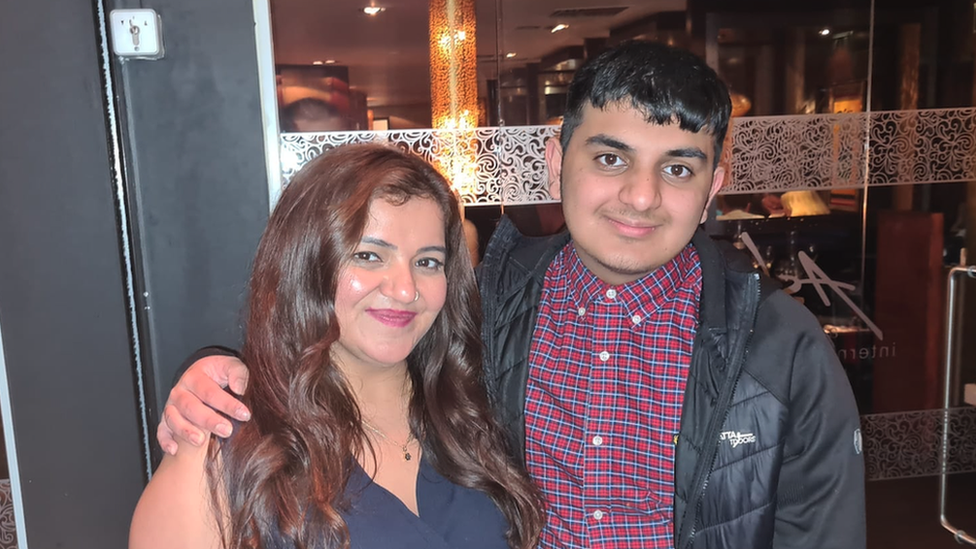Knife ban mum visits murdered son's former school
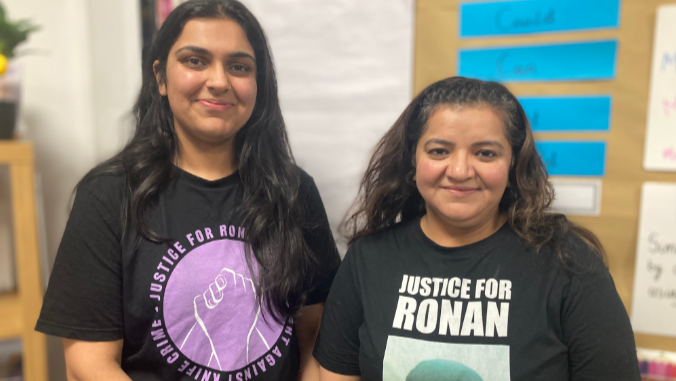
Nikita Kanda and Pooja Kanda visited Lanesfield Primary School,
- Published
The family of a 16-year-old boy who was murdered close to his Wolverhampton home have visited his former school to warn pupils of the dangers of weapons.
Ronan Kanda was stabbed to death in 2022 in a case of mistaken identity, by two teenagers who had bought a set of swords and a machete on the internet.
His mother, Pooja, has campaigned for a ban on ninja swords that is being considered by the government in a new consultation that was published on Wednesday., external
Speaking to BBC News at Lanesfield Primary School, Ms Kanda said she was grateful ministers had listened to her campaign.
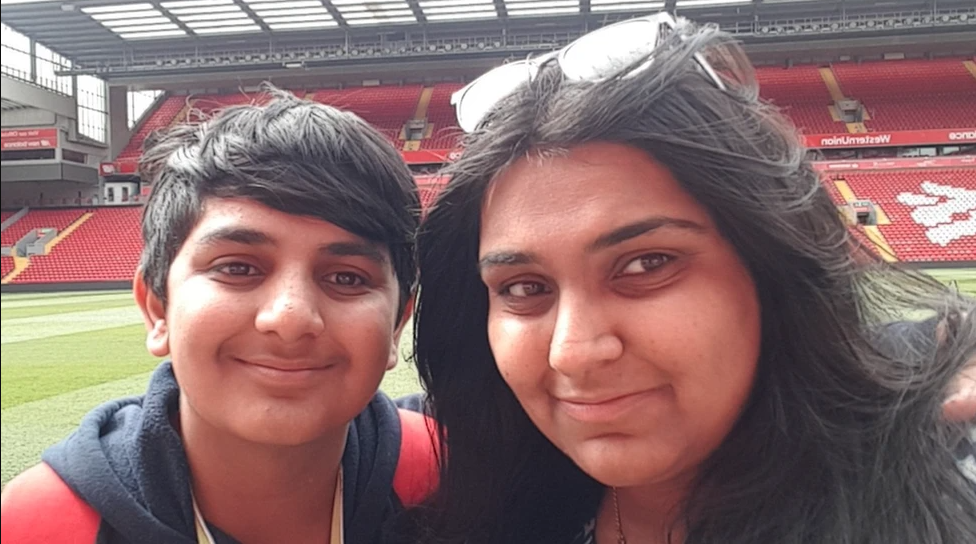
Ronan was stabbed close to his Wolverhampton home in 2022
The consultation will finalise the description of the deadly weapon, which was the first step towards bringing forward the change in legislation, the government said.
Senior social media executives who fail to remove illegal knife crime content could also face fines under the plans being considered.
Along with other mothers, Ms Kanda welcomed a ban on zombie knives in September, but said compulsory education in schools and earlier intervention for minor crimes was also vital to help drive down senseless stabbings.
She and Ronan's sister Nikita met pupils and staff at Ronan's former school addressed pupils to talk about her son.
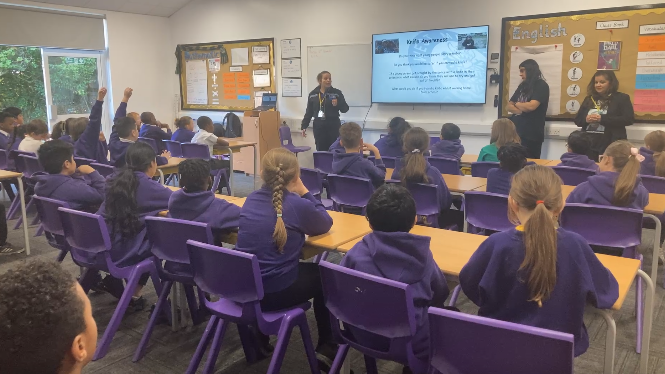
Pupils were spoken to by Ronan's mother and sister, who stressed their message was important for every young person's future
"I feel very overwhelmed right now with the fact that Ronan was in this class.. and he was one of these children who was happy, kind, didn't know what was going to happen to him in six year's time," she said.
"I feel putting the message across today for the future is so important for everyone.
"Primary school is a route that should teach children what's right and wrong."
Zoe Rollinson, head teacher, had taught Ronan, and remembered him as a "lovely young man".
'Encouraged to share experiences'
"What I remember the most about him was, he really did have a good sense of humour and always wanted to make you smile.. he was such a thoughtful and helpful young man," she said.
She said the school worked closely with West Midlands Police community officers and she felt it was important to communicate with pupils to learn about any experiences they have not shared.
"We find particularly with children, they don't share, they don't say if they've seen anything or if anything has harmed them and we know just by speaking to our children that they have seen things that they need to be encouraged to share and have that mindset that you have got a trust with adults," said Ms Rollinson.
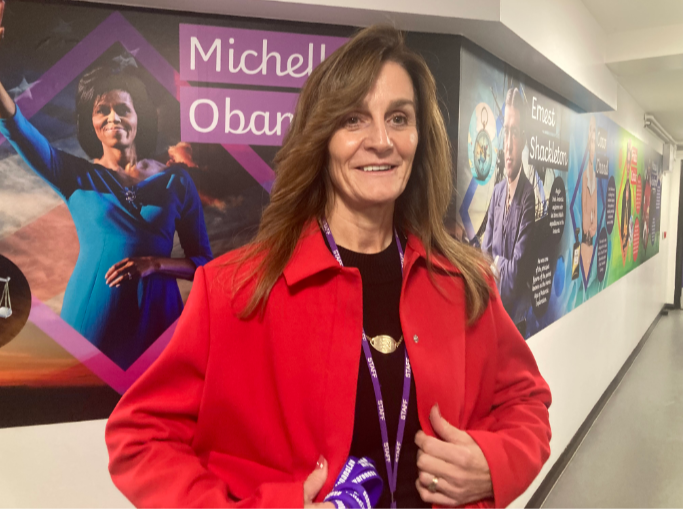
Head teacher Zoe Rollinson said she remember Ronan as a very happy boy
Get in touch
Tell us which stories we should cover in Wolverhampton
Follow BBC Wolverhampton & Black Country on BBC Sounds, Facebook, external, X, external and Instagram, external.
Related topics
- Published13 July 2023
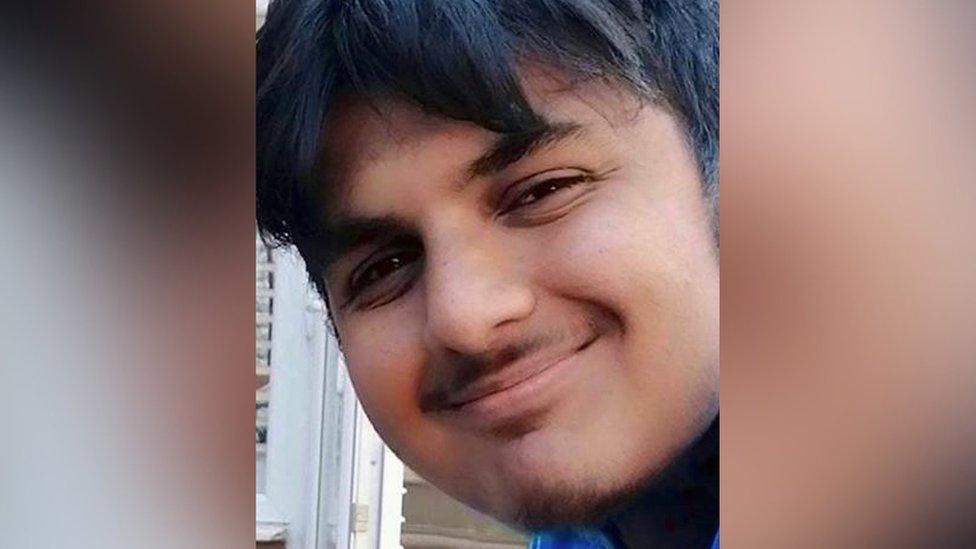
- Published13 July 2023
